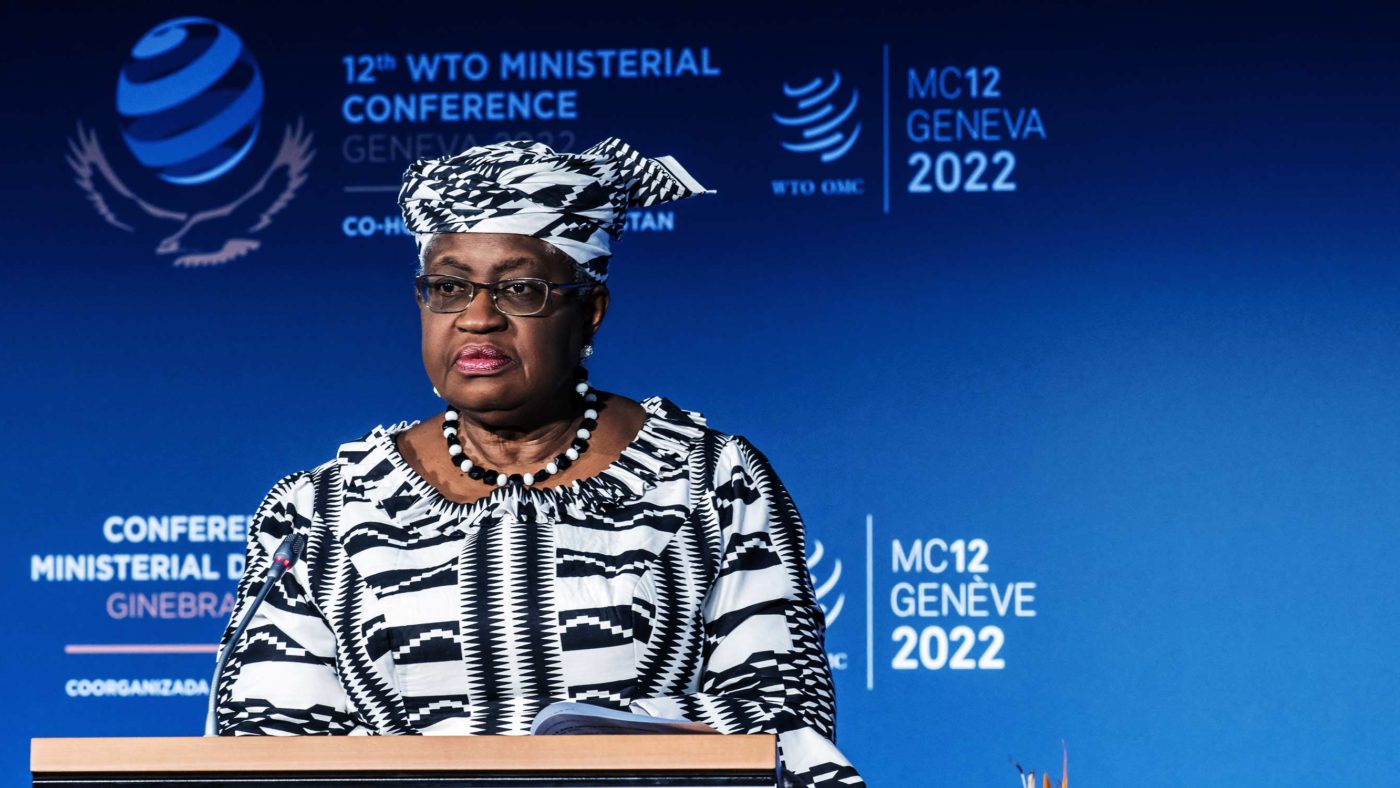This week the WTO will consider a potential waiver of the intellectual property rights conferred under the TRIPS agreement.
At first blush this looks like a political ‘vote winner’. The issue appears to pit developing countries like Brazil, India, South Africa and Argentina against powerful pharmaceutical companies.
The reality, however, is more complicated. The driver is the need to get pandemic vaccines to treat Covid-19 out to people in developing countries where take-up is lower than we would like. This all sounds like a no brainer. Who could resist?
However, there are some fundamental contextual points which need to be understood in order to assess the impact of whatever is agreed at the WTO’s Ministerial Conference this week. The real question which is whether any waiver of IP rights will actually help, and if granting a waiver in the name of ‘doing something’ will actually do significant harm to the very people it is intended to help.
First, the protection of intellectual property rights is fundamental to economic growth in developing countries. IP rights are a subset of property rights – they are not simply a temporary monopoly granted to promote innovation, as some have erroneously asserted. Indeed, in some respects they require greater protection because if they are lost, they cannot be recovered (once the patent is violated, the right is gone) whereas a lost piece of physical property can be returned to the owner.
Second, ever since TRIPS was agreed to reflect the importance of protection of these rights to trade and economic development, some countries in which powerful vested interest copycat companies exist have sought to overturn them. It is no coincidence that the leaders of the current attempt to water down these rights are the same group of countries, namely, India, South Africa and a host of Latin American countries, including Argentina and Brazil.
But the copycats, once they have received grants of the patent right (through non-enforcement or compulsory licensing) have not actually lowered prices for consumers significantly. In fact, they have charged whatever price causes the consumers to switch from the branded product.
This means a lower price to be sure, but at a massive cost to innovation. It costs north of $1bn now to produce a new drug to treat a particular disease, and part of that costs is multiple failures before there is a success. If those losses cannot be recouped, firms will simply not make the heavy investments necessary and new drugs will not be developed. To the extent that new diseases (such as Covid-19 like diseases, and also future pandemics) do still affect mankind, this would lead to a tragic waste of human life.
Third, even if the WTO were to agree to fundamentally damage intellectual property rights and hence the incentive to come up with drugs to treat new diseases, such a scheme won’t even work for the Covid-19 vaccine problem at hand. The reality is that there is more than enough production of Covid vaccines now, and some are being wasted because of logistical problems.
The issue is not IP, but the lack of competitive and functioning distribution systems in developing countries, as well as a lack of serious education campaigns in these countries on the need for vaccination. Some of the same vested interest groups that profit by copying the hard work of others, also control the distribution channels and logistics firms of developing countries. What is needed is comprehensive reform of the distribution, transportation and logistics sectors of these countries by reducing the many anti-competitive market distortions that restrict supply and increase price.
This week the new Director-General of the WTO, Ngozi Okonjo-Iweala, faces one of her first real tests of leadership. The fact she is also the first person from a developing country to lead the organisation puts even more pressure on her. She will be asked to make a choice: she can do something that might at first seem unpopular among developing countries, but which will actually help lift their people out of poverty and ensure that cures continue to be found for diseases of the future; or she can cave in to the vested interests in those countries who hide behind the skirts of the poor and voiceless to push what is a fundamentally anti-development and anti-poverty reduction agenda. Future generations are counting on her to make the right decision.
Click here to subscribe to our daily briefing – the best pieces from CapX and across the web.
CapX depends on the generosity of its readers. If you value what we do, please consider making a donation.


